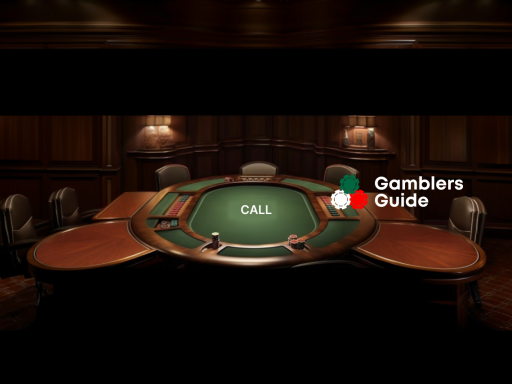Omaha poker is one of the many popular versions, just like Texas Hold’em, and it has lots in common with this version. The main difference is that each player receives four-hole cards in Omaha. Nevertheless, the possible combination per player has to include two hole cards and three of those five community ones.
Differences Between Hold’em and Omaha
The main difference between Texas Hold’em and Omaha poker is the number of hole cards a player deals and how these pocket cards form a hand. In Omaha, players get four private, but in Texas Hold’em, they have only two cards. However, the twist in Omaha is that players must utilize precisely two of their pocket cards with three out of five shared cards to make the best hand. This critical difference, however, introduces an additional degree of intricacy into hand construction and strategy considerations. Omaha is a game that requires profound thought regarding the prospective combinations.
How to Win a Hand?
A winning poker hand, whether it is Texas Hold’em or Omaha, does not exist without high thinking ability, which, with the combination of personal cards and public ones, aims to create a most secure five-card plus. During the ranking of hands, the first high card has to be ranked, and from thereof, the royal flush. Success depends on a player’s ability to analyze the table, evaluate their hand strength, and act as a betting point. Accepting the need to fold, call, raise, or bluff is essential. Finally, the player who has landed up with the best hand or survives in terms of another folding by other players takes home this pot. Being a good poker player is related to foresight, planning, and sensible gambling.
Omaha Hi-Low and Pot-Limit Omaha
High and low hands are created in Omaha Hi-Low as players compete for a divided pot. This entails critically thinking about the high and low when creating their hand. The betting structure frequently features flat bet steps for low hands and pot-limit action on high ones, adding another important factor to this game’s distinctive split pot characteristic.
Hot Pot-Limit Omaha waters down the goal of making only a high hand. Players are each dealt four hole cards and must play exactly two of those cards with three community cards to make the high hand. The betting structure is Pot-Limit, meaning that players can wager up to the size of the current pot, leading toward fascinating bets with large quantities at stake.
Therefore, Omaha’s hi-low moisture is the difficulty associated with split pot thoughts. Pot Limit Omaha is simplified by limiting focus on high hand creation inside limits of bet size.
Let’s Start еhe Game: What About Rules?
In Omaha, four private cards are given to every player instead of two, and the community board includes five randomly drawn face-up cards. In the game, you must make the best five-card hand from two of your private cards and three among community cards. Omaha can be played by 2 to 10 players, so find a group of friends or visit an online room where this kind of poker is accepted. Finally, make a poker table with enough chairs for players. Ensure you also have a regular deck of playing cards with poker chips for wagering. The other procedure is to determine who would be the first dealer. It can be done by any means that all players agree on, i.e., drawing cards or taking turns.
How to play? Basics
Omaha has two players making blinds, which are forced bets that take place before every game playing. The player seated to the dealer’s left is called a small blind, and that adjacent one at their side is called a big blind. The size of the blinds is fixed before the casino roll begins.
- The dealer performs a shuffle and doles out four hole cards per player face down, one at a time. These cards are called “Hole Cards” and should remain secret from all the other players.
- The blind player to the left starts betting in turn. From each player, there is a choice of calling (matching the current bet), raising (increasing), and folding. This proceeds clockwise around the table until all players make a folding decision or call together with the highest bet.
- The dealer puts three communal cards on the table upon being placed after the first betting round. This is commonly referred to as the “flop.“ These cards are community, and all players can use them along with their hole card to formulate the best hand. Another bet is placed following this player’s opponent, the side of who sits to their left. They could choose to check (bet nothing), bet, call a bet, or raise it.
- The dealer offers two other face cards on the board. This is known as the ‘turn’ or ’fourth street.’ The other players continue engaging in a new betting phase using the same gameplay previously used. Lastly, the dealer turns a fifth and final community card, which is also placed face up on the table. This is referred to as the “river” or “fifth street,” whereby the last round of betting takes place with players being able to bet, call, raise, or fold.
A showdown occurs if two or more players remain after the final betting round. The players reveal their hole cards, and the player with the best five-card hand wins the pot. In Omaha, players must use exactly two of their hole cards and three community cards to form their hands.
Improve Your Chances of Winning in Omaha Poker
As Omaha is such a complicated game, always endeavor to increase your knowledge and skills. Learn from books and tutorials and watch records of your matches to realize what you can do better.
- Play connected hands, suited cards, and strong pairs to have a more realistic chance of making value hands.
- Note the impact of community cards on winning hand combinations based on hole card rankings. Try to find straight and flush draws, as well as coordinated boards that are capable of creating strong hands for your opponents.
- Some combinations of hole cards and community cards allow players to make high hands and low hands. As a player, you should ensure that your low hand has the potential to be the best possible version it can achieve. Playing poor versions may come at a high cost.
- It is advantageous to be in a position requiring you to obtain more information regarding their actions before making decisions. Take this opportunity to play additional hands and apply the right pressure when necessary.
- Focus on your opponent’s playing techniques and habits. In addition, concentrate on their betting patterns, bluffing, and selections.
And the most important thing is to avoid overplaying weak hands. Don’t get lured into the vast opportunities that await in Omaha but avoid overplaying non-winning hands as well. Invest only when necessary in weak hands that have great potential.






